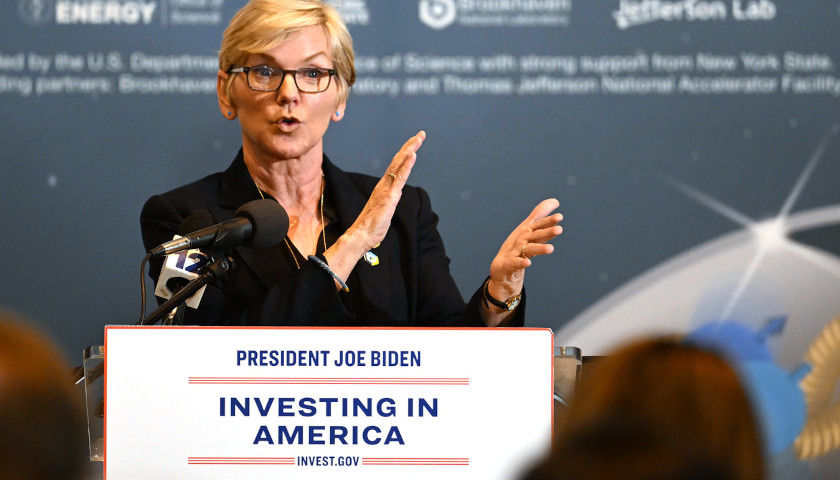by Will Kessler
Americans’ real weekly earnings dropped sharply in April and still remain well below their level when President Joe Biden first took office, according to data from the Bureau of Labor Statistics (BLS).
Real average weekly earnings fell to $1,191.93 in April, declining by 0.4% in the month and 4.8% compared to the start of Biden’s term in January 2021, according to data calculated by the Daily Caller News Foundation from the BLS. Prices have risen over 19% since Biden first took office and 3.4% in the last year, degrading the value of Americans’ wages.
The decline in earnings is also due in part to a decrease in the average number of weekly hours worked, which fell from 34.9 in January 2021 to 34.2 in April, according to the BLS.
 Real wages have been degraded due to persistently high inflation under Biden, which was measured in April at 3.4% year-over-year after peaking at 9% in June 2022.
Real wages have been degraded due to persistently high inflation under Biden, which was measured in April at 3.4% year-over-year after peaking at 9% in June 2022.
The average number of hours worked per week has declined because employers are resorting to cutting hours and shifting to part-time jobs to offset the increase in costs and slack in business conditions. Gross domestic product measured just 1.6% in the first quarter of 2024, representing a major slowdown in the growth of the U.S. economy.
Average hourly earnings rose again in Apr but fell in real terms as inflation outpaced wage growth; here you can see how wages have rocketed higher since Jan '21, but fallen significantly after adjusting for inflation – you got a raise, but it buys you less: pic.twitter.com/XtyTxvsFhm
— E.J. Antoni, Ph.D. (@RealEJAntoni) May 15, 2024
Biden has repeatedly claimed that he has brought inflation down, falsely telling CNN and Yahoo Finance that the inflation rate was 9% when he took office when it was really around 1.4%. Immediately following that claim, Biden falsely asserted that “the pay for the jobs are outpacing the inflation rate that they’re paying.”
The president also touted on Wednesday that “inflation has fallen more than 60%” from its peak. While the inflation rate has decelerated around 62% from its peak, inflation has not fallen, and the rate continues to fail to come close to the Federal Reserve’s target range of 2%.
The number of people employed in part-time positions because of poor business conditions or they could only find part-time work increased by 161,000 in April compared to the previous month, according to the BLS. Around 1 million more people held part-time jobs in April compared to the previous year, while the number of people employed in full-time jobs declined by 557,000 in that same time frame.
In accordance with rising costs and shrinking wages, the cumulative amount that Americans are holding in savings has declined in recent months, totaling just $671 billion in March, compared to over $1 trillion the year before. Credit card delinquencies greater than 90 days have also risen substantially in the past several quarters as Americans look for ways to finance through the increase in costs and the loss of income.
Persistent inflation and low growth have worried some economists that the economy is entering a period of stagflation, which wreaked havoc on the wages and purchasing power of consumers in the 1970’s and 1980’s.
Biden has also repeatedly claimed that inflation is being fueled by “corporate greed” through companies marking up prices to squeeze consumers. The Federal Reserve Bank of San Francisco disproved this claim by pointing out that corporate markups tracked closely with other economic recoveries following the COVID-19 pandemic.
Persistent inflation poses a major issue for Biden’s 2024 presidential reelection campaign, with 80% of voters surveyed by the Financial Times and the University of Michigan’s Ross School of Business saying inflation was one of their top three financial stressors. Around 49% of those surveyed believed that Biden’s policies have hurt the economy.
The White House did not immediately respond to a request to comment from the DCNF.
– – –
Will Kessler is a reporter at Daily Caller News Foundation.








